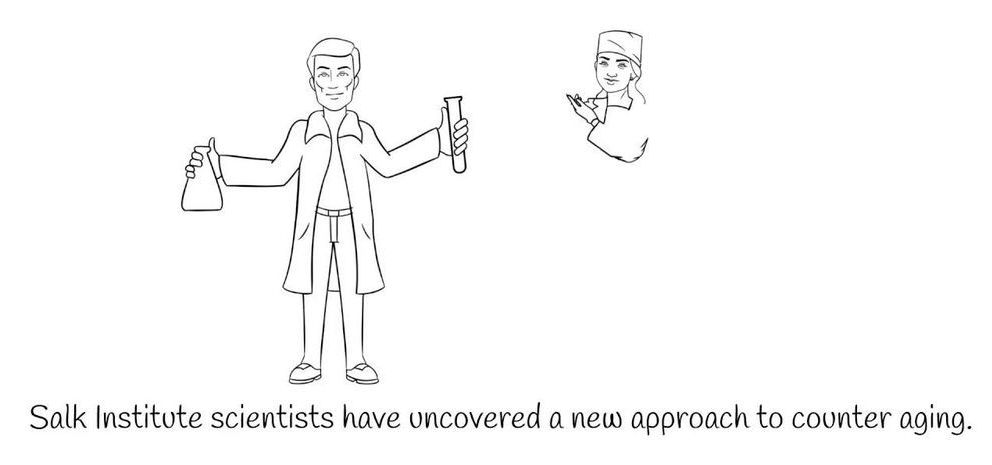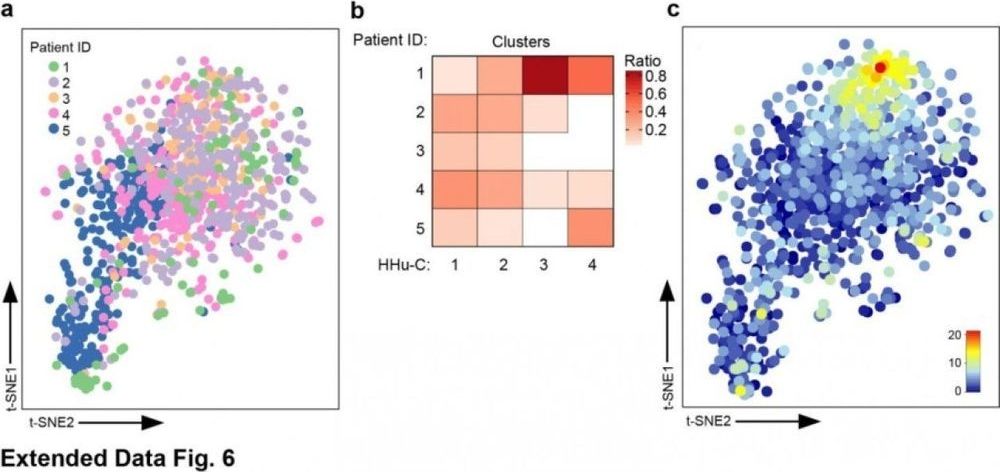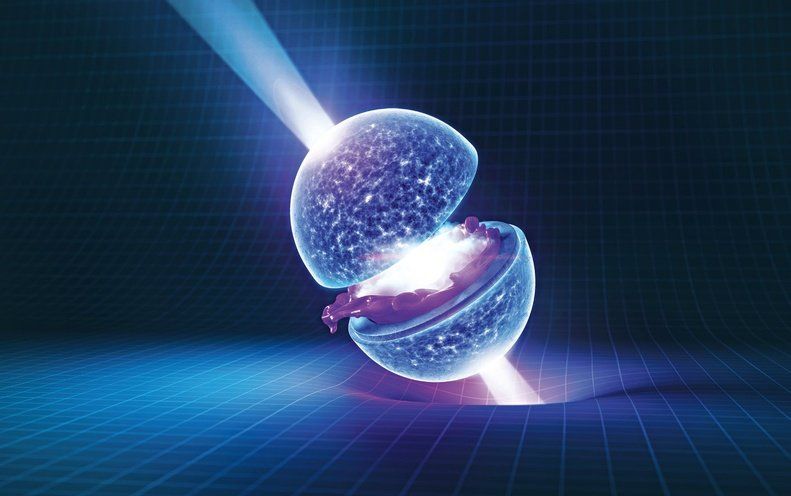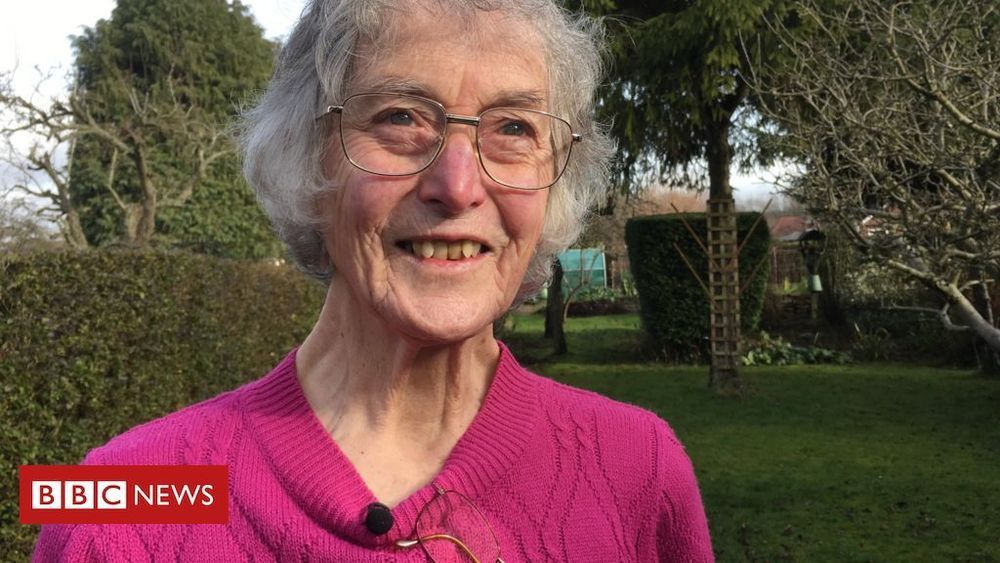Page 9070
Feb 19, 2019
Slowing the Aging Process
Posted by Paul Battista in categories: biotech/medical, genetics, life extension, neuroscience

It’s inevitable in life, but aging isn’t really something people look forward to. Researchers have been seeking ways to reduce the impact of aging, not only because of vanity but also because as we age, there is a greater risk of certain serious health conditions like cancer, heart disease and neurodegenerative conditions like Alzheimer’s disease. Salk Institute scientists have now used CRISPR/Cas9, the gene-editing tool, to slow down aging. The work, reported in Nature Medicine, showed accelerated aging can be slowed in mice modeling a rare genetic disorder called Hutchinson-Gilford progeria syndrome.
“Aging is a complex process in which cells start to lose their functionality, so it is critical for us to find effective ways to study the molecular drivers of aging,” said the senior author of the report Juan Carlos Izpisua Belmonte, a professor in Salk’s Gene Expression Laboratory. “Progeria is an ideal aging model because it allows us to devise an intervention, refine it and test it again quickly.”
Feb 19, 2019
Scientists create new map of brain’s immune system
Posted by Xavier Rosseel in categories: biotech/medical, neuroscience
“We were able to show that there is only a single type of microglia in the brain that exist in multiple flavours,” says project head Prof. Dr. Marco Prinz, medical director of the Institute of Neuropathology at the Medical Center — University of Freiburg. “These immune cells are very versatile all-rounders, not specialists, as has been the textbook opinion up to now,” sums up Prof. Prinz.
A team of researchers under the direction of the Medical Center — University of Freiburg has created an entirely new map of the brain’s own immune system in humans and mice. The scientists succeeded in demonstrating for the first time ever that the phagocytes in the brain, the so-called microglia, all have the same core signature but adopt in different ways depending on their function. It was previously assumed that these are different types of microglia. The discovery, made by means of a new, high-resolution method for analyzing single cells, is important for the understanding of brain diseases. Furthermore, the researchers from Freiburg, Göttingen, Berlin, Bochum, Essen, and Ghent (Belgium) demonstrated in detail how the human immune system in the brain changes in the course of multiple sclerosis (MS), which is significant for future therapeutic approaches. The study was published on 14. February 2019 in the journal Nature.
Feb 19, 2019
This Electric Chewing Gum Never Runs out of Flavor
Posted by Quinn Sena in category: futurism
Feb 19, 2019
The effects of collagen hydrolysat on symptoms of chronic fibromyalgia and temporomandibular joint pain
Posted by Quinn Sena in category: futurism
Feb 19, 2019
The Engine Powering the Future of Civilian Spaceflight Enters the Collections
Posted by Genevieve Klien in categories: futurism, space travel

Eight-year-old George Madden is wandering the “Moving Beyond Earth” gallery of the Smithsonian’s National Air and Space Museum on a blustery day in February. Clad in an orange spacesuit, he is examining the artifacts—the main engine from the Space Shuttle, flight suits, a rotating chair from a 1992 Spacelab mission—and lingering near a display about space travel. He gazes up at words printed in large white text on the wall: “When I grow up, I want to be an astronaut.”
His father, 52-year-old Michael Madden, will soon make history as one of the first 1,000 people to travel to space. Madden is a paid customer of Virgin Galactic, one of six “future astronauts” in the crowd who will be among the first wave of passengers to be carried into space by SpaceShipTwo when the company begins its commercial flights, maybe as soon as before the end of the year. Madden and his son, along with other space aficionados, are in the museum for a donation ceremony. Sir Richard Branson, founder of the Virgin Group, and Enrico Palermo, president of the Spaceship Company, are turning over the hybrid engine that powered Virgin Galactic’s SpaceShipTwo, VSS Unity, on its first space flight on December 13, 2018.
Continue reading “The Engine Powering the Future of Civilian Spaceflight Enters the Collections” »
Feb 19, 2019
Neutron Stars: Nature’s Weirdest Form of Matter
Posted by Genevieve Klien in category: futurism
The insides of neutron stars—the densest form of matter in the universe—have long been a mystery, but it is one that scientists are starting to crack.
Feb 19, 2019
Elon Musk: Tesla will have all its self-driving car features by the end of the year
Posted by Genevieve Klien in categories: Elon Musk, robotics/AI, transportation
Tesla will have the technology to pick up passengers and drive them to destinations by the end of the year, said CEO Elon Musk said on a podcast with an investor.
Feb 19, 2019
Episode 34: Paul Bloom on Empathy, Rationality, Morality, and Cruelty
Posted by Xavier Rosseel in category: entertainment
Feb 19, 2019
Gene therapy first to ‘halt’ most common cause of blindness
Posted by Paul Battista in category: biotech/medical
A woman from Oxford has been treated with gene therapy in a world first, in a bid to stop sight loss.
















